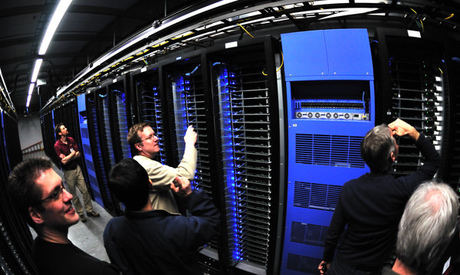Wireless chip may boost data farm energy efficiency

A new wireless multi-core chip developed at Washington State University has the potential to reduce energy consumption at large data farms by up to 20%.
A team of researchers led by WSU School of Electrical Engineering computer engineering professor Partha Pande have filed two patents for their chip design and are working on a prototype.
The design uses network-on-a-chip technology to allow multi-core processors to move data between cores wirelessly.
Eliminating the need for processors to transfer data through wires could potentially improve processing speed and cut down on wasted energy.
The architecture uses single-hop wireless shortcuts to allow chip nodes to bypass intermediary nodes and connect directly to one another.
It works in a method similar to a mobile tower, transmitting data from a tiny, low-power transceiver to on-chip antennas.
The researchers are using technology capable of making chips as small as 28 nanometres that have more than 4 billion transistors. They are also testing chips that use very high frequencies to transmit data at rates up to 10 times faster than current chips.
Researchers estimate that as much as 99% of the energy for huge data warehouses that relay mobile content including text messages and video downloads is lost between the power plant and an end-customer's smartphone.
This, coupled with the explosion of data traffic, has led the ICT industry to explore ways to improve energy efficiency for data farms.
Driving data efficiency: three strategies for modern organisations
Achieving data efficiency is critical for sustaining organisational growth in the face of...
AI at scale demands a new approach to data resilience and privacy
Data Privacy Week is a timely reminder that taking control of your data is a strategic...
Australia's path to AI sovereignty lies in strategic control, not reinvention
Many argue that Australia's priority should be building sovereign AI infrastructure and...




